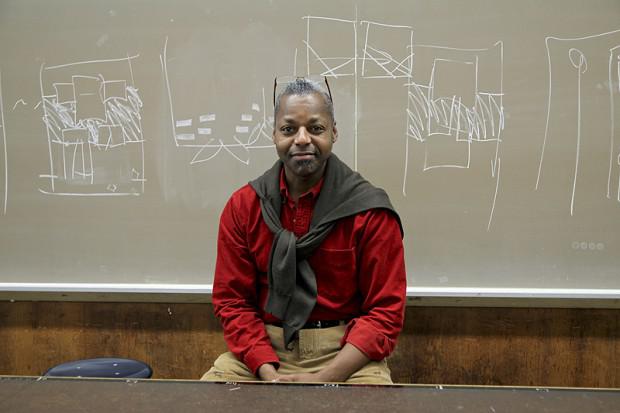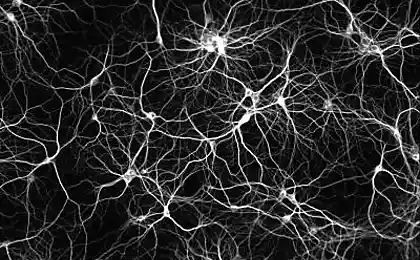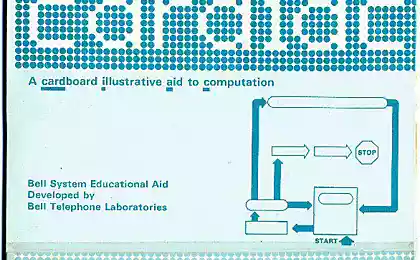855
10 things that will change your idea of memory
Memory - large obmanschitsa
According to some psychologists, human memory is like a game "broken telephone" - the memories are constantly changing and sometimes comes to the fact that our vision of the events of the past no longer have them anything to do. In other words, the memory - not shelf with books, where you can get any tome and read it, rather it is a big draft, which we have, without knowing it, are constantly editing, redefining the fragments. Not only that - surrounding also be taken out of our manuscript old page, delete and append the whole chapter. We invite you to familiarize yourself with the amazing properties of memory, but be warned - he has started reading the last line, you will find that your memory will never be the same.
1. Different types of lies are stored in raznomu
A person's ability to remember their lies depends on how he lied. Staff at Louisiana State University decided to find out how different types of people remember his lies - lies and false descriptions of denial. Lies description - a man-made details, with which he wants to bring to the attention of the interlocutor of an event that did not happen in reality, and denying this is a lie, as a rule, a brief false answer to the question.
During the experiment, it was found that false descriptions recall easily and stored in memory for longer, since it works a man is making a lot more effort, especially if the listener is in no hurry to make said at face value - in this case, the liar is forced to come up with a lot of plausible detail to convince the interlocutor . Most of the study participants could recall the false description of all the details, even two days after the conversation.
It is curious that the false negatives are much shorter and easier to describe, but the majority of the subjects were not able to recall the false answers within 48 hours after they were announced.
2. "devastation" of memory helps to make winning bets on totalizatore
As you know, even the luckiest person sometimes puts on the wrong team, but, according to the united group of researchers from University College London and the University of Montreal, with the help of simple tricks you can learn to predict the results of sports matches with almost the same probability as the special statistical computer programs.
We make decisions using a limited number of memories, with pop-up in the memory information is often misleading, especially if it does not contain the most probable scenarios. In other words, count on a forecast based on random data - not a good idea. "Garbage in - garbage out».
In the experiment, the researchers suggested two groups of volunteers to predict the results of several baseball games, based on the results of past games. Participants of the "realists" said the real score of the match, and the "idealists," said that defeated more than successful as a whole team, even if it's not true. As a result, the prediction of the second group were much more accurate than the first prediction. Experts believe that it is the lack of "garbage" on the real results of the matches enabled the group of "idealists" to make successful predictions.
To use this property in our thinking, in practice, you should be familiar with the best estimates of the results of games and practice you should be able to make a successful bid. For example - during the World Cup draw up a "forecast" for the last games of the championship, calling the "winners" of each particular recent match, based on the number of wins of one team over the other, of course, provided that you do not know the real results. Then compare their expectations with the real account - if most of them would be true, try the system for current games, but anyway - it is a sport, and therefore, the result is unpredictable.
3. The justification of war crimes changes the idea of voyne
The study, conducted by experts at Princeton University show that the information "justifying" the atrocities of the soldiers participating country of the military conflict, changes the perception of citizens about the war - including, if the information is "whitewashes" obviously inhuman behavior of the military, for example, torture and extermination the civilian population. Researchers believe that in this way people are helped to get rid of remorse and absolve themselves of moral responsibility for the war crimes committed by fellow citizens.
Scientists have offered 72 white Americans read four stories about the monstrous deeds of soldiers during military operations in Iraq and Afghanistan, at the same time in every story cited "justification" of their atrocities. Two stories were dedicated to the US military, and the other two - to their opponents. Afterwards, the participants staged a preview video with two of the four retelling stories, but without the "justification" of war crimes.
During the implementation of the control task revealed that volunteers often remembered a video version of the stories about the atrocities of each of the parties to the conflict, but as a rule, brought "rational explanations" it acts of American soldiers, although the rollers of justification was not a word. It is worth noting that such features memorizing information warfare is often used by politicians and journalists to influence public opinion.
4. The color of educated blacks stored as a svetlyy
In one of the issues of the journal «SAGE Open» published the results of a curious experiment: the researchers provided students volunteer subliminal perception depicted in the photograph of a black man as "ignorant" or "educated" and then showed them seven shots of the same person, but with different shades leather - the original three variants and three light shades darker. Students are encouraged to choose a photo corresponding to the image shown to them earlier.
The results were quite interesting - those who believed educated African-American, chose his shots with lighter than it actually skin - a phenomenon known as "memory bias on the complexion» («skin tone memory bias»).
When the resulting human stereotypes expectations prove to be wrong, memory "offset" error in some way, "defending" its bias - so remembering smart and successful Negro people tend to mentally "clarify" his skin.
5. Painkillers can get rid of forgetfulness associated with the use of marihuany
Some people believe that marijuana helps in the treatment of certain diseases, such as cancer illnesses and epilepsy, but there are side effects of its use, such as forgetfulness and problems with learning disabilities.
Researchers from Louisiana State University say that some of these problems can be solved with the help of painkillers. During the experiment, it was found out that the main active component of marijuana - delta-9-tetrahydrocannabinol, increases the level of the enzyme cyclooxygenase (COX-2) in the brain of experimental mice, which is responsible for training and education of memories (hippocampus). Researchers have found that drugs or other methods of reducing the level of COX-2 in the hippocampus prevent problems with memory and learning due to delta-9-THC. The experimental results indicate that one of the most effective drugs, reducing the content of COX-2 - ibuprofen pain reliever nonprescription.
Scientists believe that the combination of delta-9-THC and ibuprofen can be an effective way to treat Alzheimer's disease. In turn, research specialists Medical Center at Stanford University found a link between blocking endocannabinoid (something like "the inside of marijuana", produced by the human brain) and the early stages of Alzheimer's disease, but scientists warn that marijuana use does not prevent the development of this disease. < br />
6. Passing through doorways provokes lapses pamyati
It does not matter, man goes out of the room, or comes into it - an important fact pass through the doorway, what are the results of a study conducted by the University of Notre Dame. This behavioral act is perceived by the brain as a "border events" that separates what happens to a person in a room of what will happen to him in the other.
Students who participated in the study, performed various tasks such as exchanging items, taken them from one table to the items from the other, with actions committed in three different ways - in one case, everything happened in one room, the other party is invited to accomplish the exchange, after passing through doorway, and in the third they had to go through several doorways, leading back to the first room. In the transition from one room to the participants forget that they need to do much more than the exchange that does not require leaving the room.
7. Women are better remember the men with low golosom
According to researchers from the University of Aberdeen, a man having a low voice a greater chance that the female interviewee remembers what he said and himself. The majority of the fair sex is like a deep male voice, so they tend to listen more closely, and these men are more likely to evaluate them as potential mates.
By the way, facial features interlocutor also affect, remember it or not. Psychologists of Jena University found that people with irregular and not too handsome features usually remembered better Krasavchikov cute and beautiful women, especially if the person is not attractive any distinguishing features such as large eyes.
It should be noted that in general, the sound information to the person to remember complicated, something he sees or touches - this is according to a study conducted in Iowa State University. In order to better remember information "by ear", experts recommend several times to repeat them to myself.
8. "Love at first sight" - quirks pamyati
Every time you remove from memory any information, it varies according to your current ideas about the world. Staff at Northwestern University (Illinois) believe that it is this trick of memory can be explained by the phenomenon of "love at first sight" - people tend to project experienced them to partner feeling at that time, when the first meeting.
To confirm this hypothesis, the scientists staged an experiment where participants were asked to remember the location of objects shown to them earlier on a computer screen. If you change the background, participants always wrong, and the next attempt to recall the initial alignment of objects they often chose the wrong options proposed by them after changing the background - their memory to quickly adapt to the false information and perceives it as reliable.
During similar experiments found that the more often a person turns to the witness, the more blurred it becomes - in the end it may turn into an image that does not correspond to what actually happened. With such a phenomenon often face the investigating authorities in the course of the examination of witnesses - over time their memories of the incident visibly transformed.
Moreover - researchers from Iowa State University say that when a person remembers an event, the source can change his memories, entering new information in memory, with this technique can be used for about six hours after each retrieve information from memory. After this period of time "window" is closed and re-adjust the memory of it will be possible only if the next call to him.
9. False memories are formed, even in people with autobiographical pamyatyuLyudi so-called autobiographical memory, also known as gipertimestichesky syndrome are able to remember the smallest details of their lives, until specific details of actions committed as a child, and tested at the same emotions. However, these are not the only ones protected from the distortions of memories, even though they do not always understand it.
Actress Marilu Henner, which has autobiographical memory, remember, for example, a specific date when she took on the role in the TV show "Taxi" - June 4, 1978, the year and the circumstances in which she found out about it: this Sunday evening Henner was at a party in honor of the premiere of the film "Grease." According to her, her earliest memories are of baptism: "My godmother was a nun, and each time we met she told me about this event" - says Marylou.
Approximately formed false memories in people with Hyperthymesia - godmother constantly mentions the baptism of the actress in her presence, could inadvertently introduce into memory Henner false information, because her own memories change over time. So even gipertimestichesky syndrome is not able to protect people from misinformation from other people who do not have such a perfect memory.
10. By manipulating the memories, you can win strah
Long-term human memory is formed by the consolidation process, ie by the transfer of information from short-term memory. From the moment you remember about some event that is transferred information about it in the short-term memory, and as long as the memory is again moved into long-term memory, this information is subject to change your current thinking about the world. Scientists hope to use this phenomenon to erase unwanted emotional memories - for example, severe stress.
Researchers from Uppsala University set up an experiment in which they formed the subjects memories of fear, shock hitting the participants when they looked at emotionally neutral image. Then again, scientists have shown one of the groups of subjects the same picture and while the discharge was not followed, the volunteers again felt fear, re-consolidating the memory and fix it. Members of the other group did not allow the researchers to refresh emotion in mind, this process is still violating several viewing images without electric shock, as a result, participants have ceased to feel fear when looking at the picture.
No less curious experiment employees at Northwestern University - they tried to manipulate the memories of the fear of volunteers while they slept. While examining the subjects of the two images of human faces of their current hit at the same time allowed to feel the fragrance of lemon or mint, to combine visual and olfactory sensations with memories of fear.
When participants fall asleep, the researchers filled the room with one of the odors, but do not expose them to current and immediately after waking showed the same pictures. If a person associated with electric shocks and aroma that participants felt during sleep, his reaction to the memories of the fear was much less pronounced, with the fear of a person connected with another odor, remained virtually unchanged.
Scientists believe that similar techniques can be used in the treatment of obsessive phobias, panic attacks and post-traumatic stress disorder.
via factroom.ru

According to some psychologists, human memory is like a game "broken telephone" - the memories are constantly changing and sometimes comes to the fact that our vision of the events of the past no longer have them anything to do. In other words, the memory - not shelf with books, where you can get any tome and read it, rather it is a big draft, which we have, without knowing it, are constantly editing, redefining the fragments. Not only that - surrounding also be taken out of our manuscript old page, delete and append the whole chapter. We invite you to familiarize yourself with the amazing properties of memory, but be warned - he has started reading the last line, you will find that your memory will never be the same.
1. Different types of lies are stored in raznomu

A person's ability to remember their lies depends on how he lied. Staff at Louisiana State University decided to find out how different types of people remember his lies - lies and false descriptions of denial. Lies description - a man-made details, with which he wants to bring to the attention of the interlocutor of an event that did not happen in reality, and denying this is a lie, as a rule, a brief false answer to the question.
During the experiment, it was found that false descriptions recall easily and stored in memory for longer, since it works a man is making a lot more effort, especially if the listener is in no hurry to make said at face value - in this case, the liar is forced to come up with a lot of plausible detail to convince the interlocutor . Most of the study participants could recall the false description of all the details, even two days after the conversation.
It is curious that the false negatives are much shorter and easier to describe, but the majority of the subjects were not able to recall the false answers within 48 hours after they were announced.
2. "devastation" of memory helps to make winning bets on totalizatore

As you know, even the luckiest person sometimes puts on the wrong team, but, according to the united group of researchers from University College London and the University of Montreal, with the help of simple tricks you can learn to predict the results of sports matches with almost the same probability as the special statistical computer programs.
We make decisions using a limited number of memories, with pop-up in the memory information is often misleading, especially if it does not contain the most probable scenarios. In other words, count on a forecast based on random data - not a good idea. "Garbage in - garbage out».
In the experiment, the researchers suggested two groups of volunteers to predict the results of several baseball games, based on the results of past games. Participants of the "realists" said the real score of the match, and the "idealists," said that defeated more than successful as a whole team, even if it's not true. As a result, the prediction of the second group were much more accurate than the first prediction. Experts believe that it is the lack of "garbage" on the real results of the matches enabled the group of "idealists" to make successful predictions.
To use this property in our thinking, in practice, you should be familiar with the best estimates of the results of games and practice you should be able to make a successful bid. For example - during the World Cup draw up a "forecast" for the last games of the championship, calling the "winners" of each particular recent match, based on the number of wins of one team over the other, of course, provided that you do not know the real results. Then compare their expectations with the real account - if most of them would be true, try the system for current games, but anyway - it is a sport, and therefore, the result is unpredictable.
3. The justification of war crimes changes the idea of voyne

The study, conducted by experts at Princeton University show that the information "justifying" the atrocities of the soldiers participating country of the military conflict, changes the perception of citizens about the war - including, if the information is "whitewashes" obviously inhuman behavior of the military, for example, torture and extermination the civilian population. Researchers believe that in this way people are helped to get rid of remorse and absolve themselves of moral responsibility for the war crimes committed by fellow citizens.
Scientists have offered 72 white Americans read four stories about the monstrous deeds of soldiers during military operations in Iraq and Afghanistan, at the same time in every story cited "justification" of their atrocities. Two stories were dedicated to the US military, and the other two - to their opponents. Afterwards, the participants staged a preview video with two of the four retelling stories, but without the "justification" of war crimes.
During the implementation of the control task revealed that volunteers often remembered a video version of the stories about the atrocities of each of the parties to the conflict, but as a rule, brought "rational explanations" it acts of American soldiers, although the rollers of justification was not a word. It is worth noting that such features memorizing information warfare is often used by politicians and journalists to influence public opinion.
4. The color of educated blacks stored as a svetlyy

In one of the issues of the journal «SAGE Open» published the results of a curious experiment: the researchers provided students volunteer subliminal perception depicted in the photograph of a black man as "ignorant" or "educated" and then showed them seven shots of the same person, but with different shades leather - the original three variants and three light shades darker. Students are encouraged to choose a photo corresponding to the image shown to them earlier.
The results were quite interesting - those who believed educated African-American, chose his shots with lighter than it actually skin - a phenomenon known as "memory bias on the complexion» («skin tone memory bias»).
When the resulting human stereotypes expectations prove to be wrong, memory "offset" error in some way, "defending" its bias - so remembering smart and successful Negro people tend to mentally "clarify" his skin.
5. Painkillers can get rid of forgetfulness associated with the use of marihuany

Some people believe that marijuana helps in the treatment of certain diseases, such as cancer illnesses and epilepsy, but there are side effects of its use, such as forgetfulness and problems with learning disabilities.
Researchers from Louisiana State University say that some of these problems can be solved with the help of painkillers. During the experiment, it was found out that the main active component of marijuana - delta-9-tetrahydrocannabinol, increases the level of the enzyme cyclooxygenase (COX-2) in the brain of experimental mice, which is responsible for training and education of memories (hippocampus). Researchers have found that drugs or other methods of reducing the level of COX-2 in the hippocampus prevent problems with memory and learning due to delta-9-THC. The experimental results indicate that one of the most effective drugs, reducing the content of COX-2 - ibuprofen pain reliever nonprescription.
Scientists believe that the combination of delta-9-THC and ibuprofen can be an effective way to treat Alzheimer's disease. In turn, research specialists Medical Center at Stanford University found a link between blocking endocannabinoid (something like "the inside of marijuana", produced by the human brain) and the early stages of Alzheimer's disease, but scientists warn that marijuana use does not prevent the development of this disease. < br />
6. Passing through doorways provokes lapses pamyati

It does not matter, man goes out of the room, or comes into it - an important fact pass through the doorway, what are the results of a study conducted by the University of Notre Dame. This behavioral act is perceived by the brain as a "border events" that separates what happens to a person in a room of what will happen to him in the other.
Students who participated in the study, performed various tasks such as exchanging items, taken them from one table to the items from the other, with actions committed in three different ways - in one case, everything happened in one room, the other party is invited to accomplish the exchange, after passing through doorway, and in the third they had to go through several doorways, leading back to the first room. In the transition from one room to the participants forget that they need to do much more than the exchange that does not require leaving the room.
7. Women are better remember the men with low golosom

According to researchers from the University of Aberdeen, a man having a low voice a greater chance that the female interviewee remembers what he said and himself. The majority of the fair sex is like a deep male voice, so they tend to listen more closely, and these men are more likely to evaluate them as potential mates.
By the way, facial features interlocutor also affect, remember it or not. Psychologists of Jena University found that people with irregular and not too handsome features usually remembered better Krasavchikov cute and beautiful women, especially if the person is not attractive any distinguishing features such as large eyes.
It should be noted that in general, the sound information to the person to remember complicated, something he sees or touches - this is according to a study conducted in Iowa State University. In order to better remember information "by ear", experts recommend several times to repeat them to myself.
8. "Love at first sight" - quirks pamyati

Every time you remove from memory any information, it varies according to your current ideas about the world. Staff at Northwestern University (Illinois) believe that it is this trick of memory can be explained by the phenomenon of "love at first sight" - people tend to project experienced them to partner feeling at that time, when the first meeting.
To confirm this hypothesis, the scientists staged an experiment where participants were asked to remember the location of objects shown to them earlier on a computer screen. If you change the background, participants always wrong, and the next attempt to recall the initial alignment of objects they often chose the wrong options proposed by them after changing the background - their memory to quickly adapt to the false information and perceives it as reliable.
During similar experiments found that the more often a person turns to the witness, the more blurred it becomes - in the end it may turn into an image that does not correspond to what actually happened. With such a phenomenon often face the investigating authorities in the course of the examination of witnesses - over time their memories of the incident visibly transformed.
Moreover - researchers from Iowa State University say that when a person remembers an event, the source can change his memories, entering new information in memory, with this technique can be used for about six hours after each retrieve information from memory. After this period of time "window" is closed and re-adjust the memory of it will be possible only if the next call to him.
9. False memories are formed, even in people with autobiographical pamyatyuLyudi so-called autobiographical memory, also known as gipertimestichesky syndrome are able to remember the smallest details of their lives, until specific details of actions committed as a child, and tested at the same emotions. However, these are not the only ones protected from the distortions of memories, even though they do not always understand it.
Actress Marilu Henner, which has autobiographical memory, remember, for example, a specific date when she took on the role in the TV show "Taxi" - June 4, 1978, the year and the circumstances in which she found out about it: this Sunday evening Henner was at a party in honor of the premiere of the film "Grease." According to her, her earliest memories are of baptism: "My godmother was a nun, and each time we met she told me about this event" - says Marylou.
Approximately formed false memories in people with Hyperthymesia - godmother constantly mentions the baptism of the actress in her presence, could inadvertently introduce into memory Henner false information, because her own memories change over time. So even gipertimestichesky syndrome is not able to protect people from misinformation from other people who do not have such a perfect memory.
10. By manipulating the memories, you can win strah

Long-term human memory is formed by the consolidation process, ie by the transfer of information from short-term memory. From the moment you remember about some event that is transferred information about it in the short-term memory, and as long as the memory is again moved into long-term memory, this information is subject to change your current thinking about the world. Scientists hope to use this phenomenon to erase unwanted emotional memories - for example, severe stress.
Researchers from Uppsala University set up an experiment in which they formed the subjects memories of fear, shock hitting the participants when they looked at emotionally neutral image. Then again, scientists have shown one of the groups of subjects the same picture and while the discharge was not followed, the volunteers again felt fear, re-consolidating the memory and fix it. Members of the other group did not allow the researchers to refresh emotion in mind, this process is still violating several viewing images without electric shock, as a result, participants have ceased to feel fear when looking at the picture.
No less curious experiment employees at Northwestern University - they tried to manipulate the memories of the fear of volunteers while they slept. While examining the subjects of the two images of human faces of their current hit at the same time allowed to feel the fragrance of lemon or mint, to combine visual and olfactory sensations with memories of fear.
When participants fall asleep, the researchers filled the room with one of the odors, but do not expose them to current and immediately after waking showed the same pictures. If a person associated with electric shocks and aroma that participants felt during sleep, his reaction to the memories of the fear was much less pronounced, with the fear of a person connected with another odor, remained virtually unchanged.
Scientists believe that similar techniques can be used in the treatment of obsessive phobias, panic attacks and post-traumatic stress disorder.
via factroom.ru























